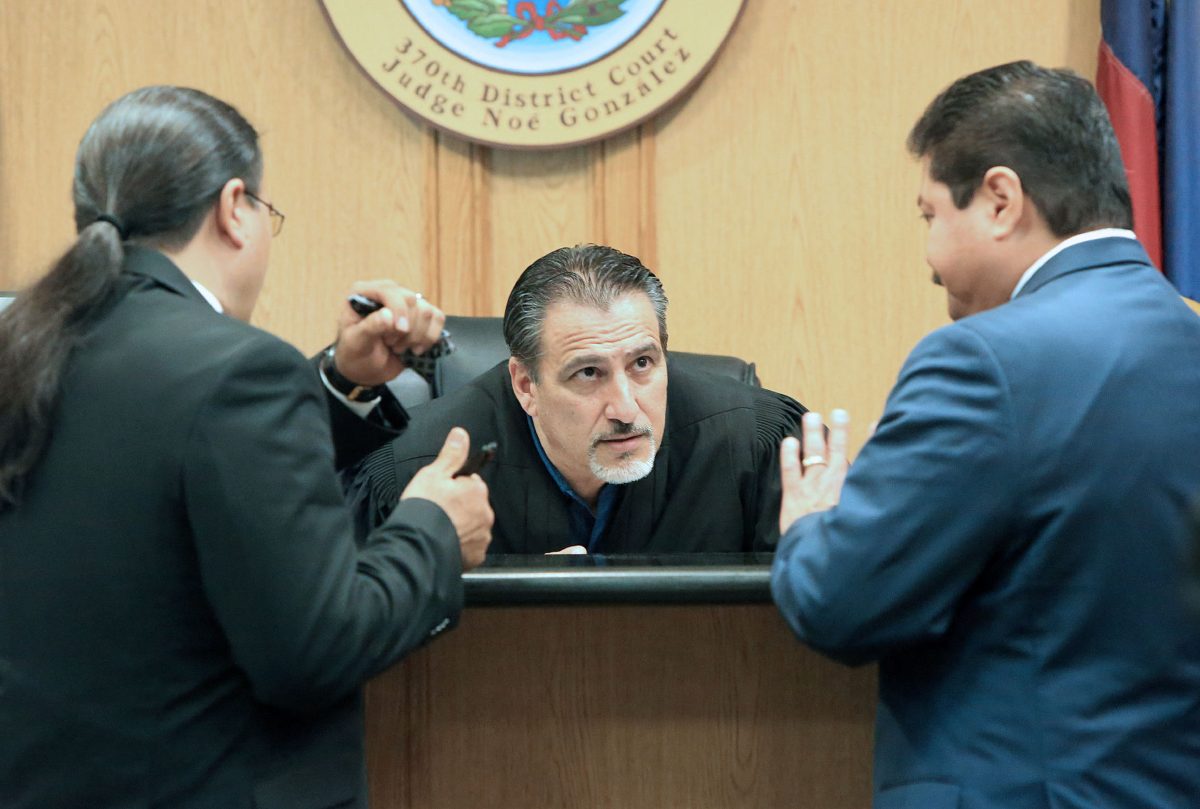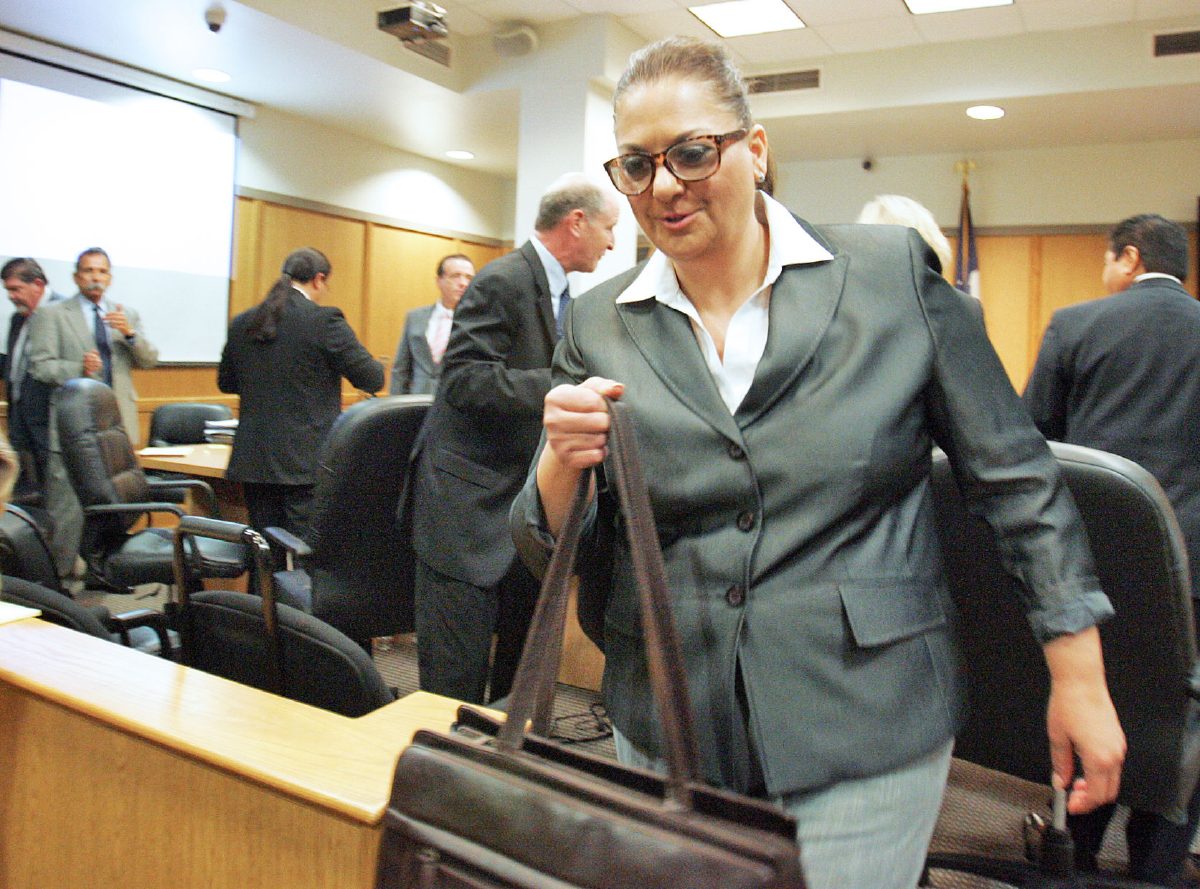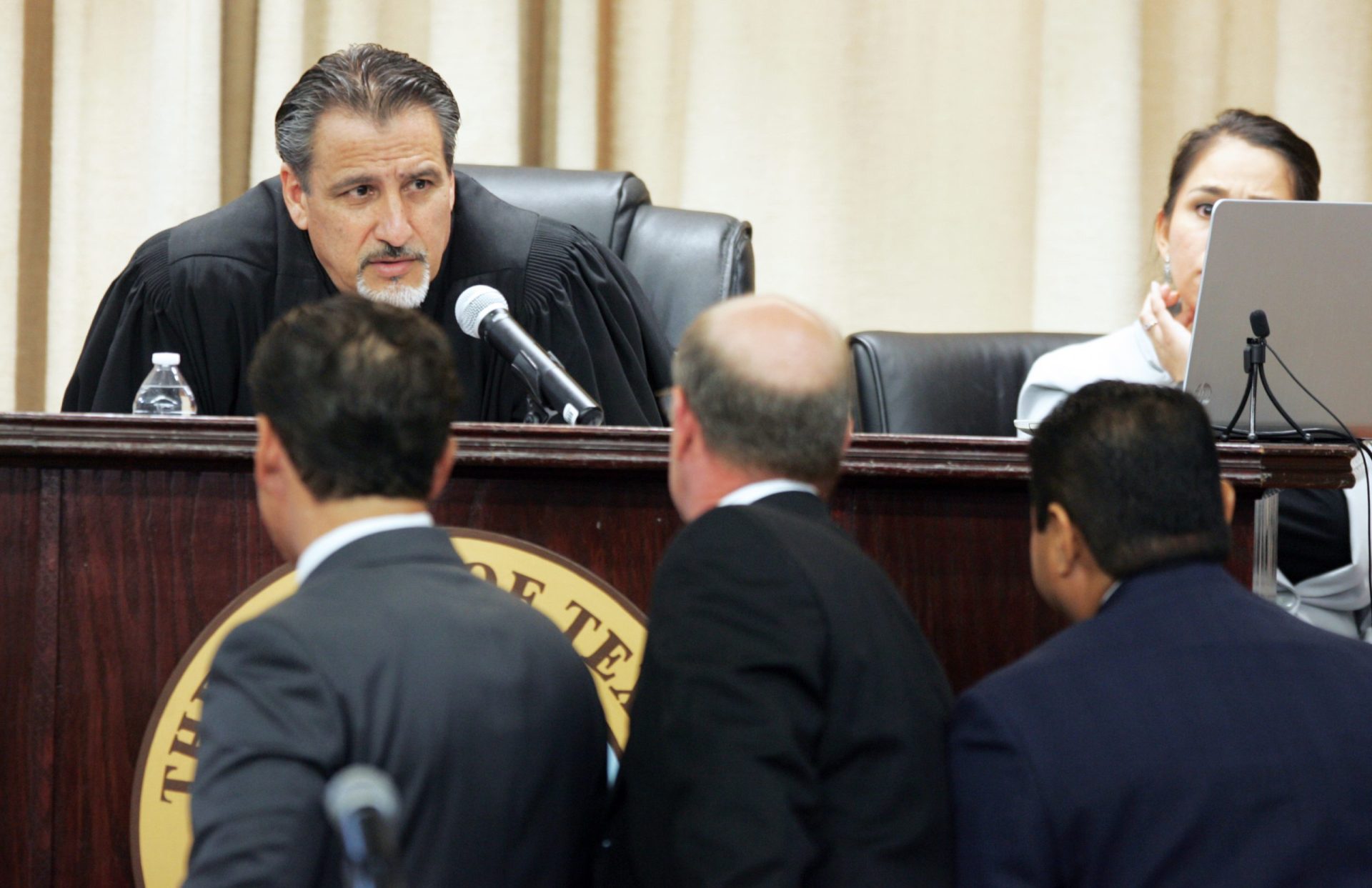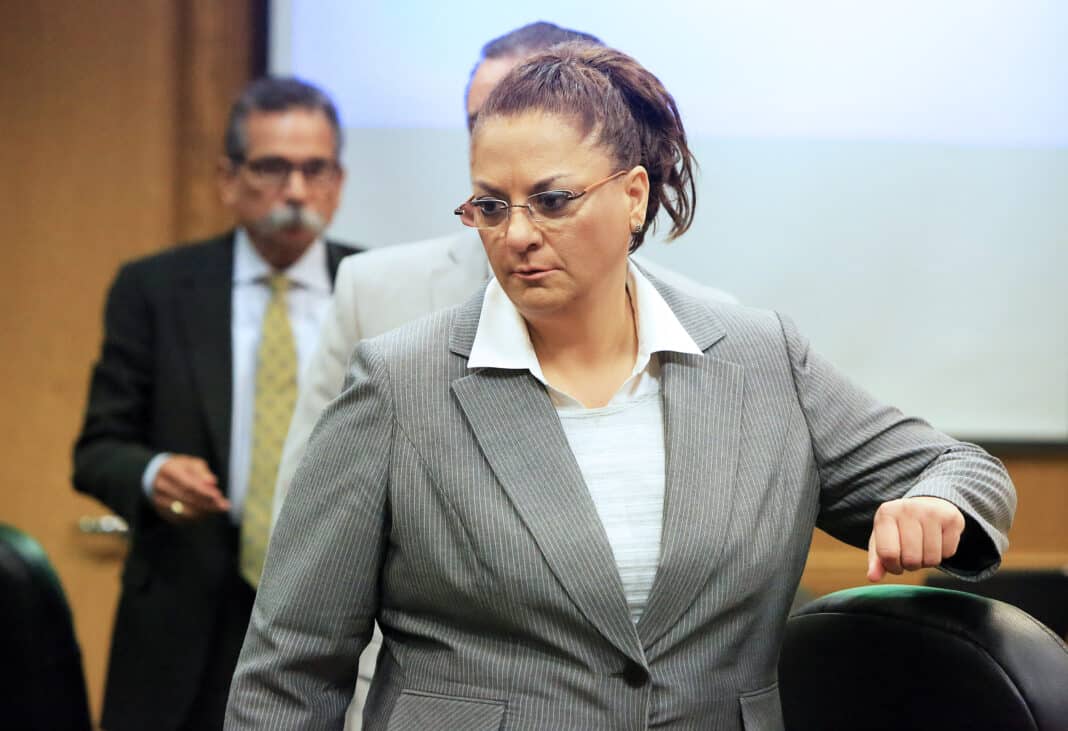|
Only have a minute? Listen instead
Getting your Trinity Audio player ready...
|
In the wake of Monica Melissa Patterson being convicted of orchestrating the murder of a 96-year-old man and draining his bank account of tens of thousands of dollars, state and national media brought the story to millions of people across the country.
Then, the story of how the 56-year-old Patterson, who was the executive director of the Comfort House and a member of a prominent Hidalgo County political family, went dormant.
But last year, an appeal she filed gained some traction after the Texas Court of Criminal Appeals ordered it remanded to the trial court over claims of new medical evidence and ineffective assistance of counsel. The Innocence Project of Texas, which has been involved in more than 20 exonerations in Texas, even filed a friend-of-the-court brief in the case arguing that testimony from forensic pathologist Norma Farley should not have been admitted in the case. The organization did not take a stance on guilt or innocence.
Patterson’s trial lasted nearly six weeks starting on Sept. 20, 2017 and ending with guilty verdicts on Nov. 1, 2017.
Ultimately, she was convicted of the Jan. 28, 2015 murder of Martin Knell, who was killed on Jan. 28, 2015. She is serving life without parole.
She was also convicted of stealing more than $100,000 from the Comfort House and trying to take more than $200,000 from Knell.
Her co-defendant, Angel Mario Garza, previously pleaded guilty to strangling Knell and is serving a 45-year prison sentence.
The appeal
In her appeal, Patterson claims that her co-defendant, Garza, has recanted his confession. She also claims that another forensic pathologist who reviewed slides from Knell’s autopsy determined he died of a heart attack, not strangulation.
Patterson also attacked the cellphone tower data that prosecutors used during the trial to show that she was in the location when Knell died.
She also claimed her attorneys provided her ineffective assistance of counsel.
On Sept. 15, state District Judge Noe Gonzalez — who presided over her trial — flatly recommended to the Texas Court of Criminal Appeals that each and everyone one of Patterson’s appellate claims be dismissed.

In his 35-page signed recommendation, Gonzalez also said he believes a hearing on Patterson’s claims is not necessary.
Gonzalez’s recommendation parses Patterson’s claims piece by piece.
To open, Gonzalez wrote that a post conviction claim relies on facts known to Patterson during trial or within a period thereafter to be raised in a new trial proceeding or in an appeal is not cognizable in the type of appeal Patterson is pursuing.
“Evidence that was available at time of trial or which could have been secured through the exercise of diligence before trial is not ‘newly discovered evidence’ for purposes of claiming entitlement to post-Judgment relief,” Gonzalez wrote.
The judge said that in determining whether particular scientific evidence was ascertainable at the time of or before trial, the court must consider whether that science has changed since the end of trial.
“Among the claims generally barred from consideration under this principle are assertions of evidentiary insufficiency,” Gonzalez said in the recommendation.
There are also two types of actual innocence claims in Texas. In Patterson’s case, it falls into a category that characterizes the claim as being raised for the first time, according to Gonzalez’s recommendation.
“To prevail on an actual innocence claim such as is presented here, Applicant must first make an ‘exceedingly persuasive case’ of innocence,” the judge wrote.
Not only that, it also must show that the evidence is newly discovered or newly available. The appeal cannot rely on evidence or facts available at time of trial or during motions filed after a trial such as a motion for a new trial.

The recommendation
As for her ineffective assistance of counsel claim, Patterson would have to show that her representation fell below an objective standard of reasonableness and that if that had not happened, the result of the proceeding would be different.
“The fact that a different attorney might have taken a different course as to trial strategy does not, without more, support a determination that counsel rendered ineffective assistance,” Gonzalez said.
Additionally, the lack of raising a particular motion cannot support a finding of ineffective assistance of counsel and to prevail on such a claim Patterson would have to show what a more in-depth investigation would have revealed that would have been beneficial to her case.
“Applicant makes no assertions as to the precise nature and substance of beneficial evidence which would have come to light upon further investigation by counsel,” the judge wrote.
The court also noted that purported recantations from co-defendants who have been convicted and sentenced are viewed with “extreme suspicion” because a person in that situation has great incentive to exonerate others and no disincentive to lie.
Gonzalez noted that Garza, who purportedly recanted, did not present an affidavit or other proof of claim for the appeal.
The claim that he recanted comes from two other people who do not claim to have personal knowledge of the facts surrounding the killing.
“The claimed recantation through these said witnesses does not meet the hearsay exception for a Statement Against Interest, as nothing therein would expose Angel Mario Garza to criminal liability,” Gonzalez wrote. “A recantation by Angel Mario Garza himself reciting these factual claims would be inadmissible as a self-serving statement not meeting any exception to the general prohibition against hearsay.
The judge also wrote that there is evidence contrary to Garza’s alleged recantation, including that he was seen taking out medical gloves just before entering Knell’s home with sounds a struggle being heard immediately after before Knell was discovered slumped over a table “desperately trying to draw breath.”

“The Court, therefore, would attribute no credibility to any after-the-fact statement of Garza purporting to exonerate Applicant,” Gonzalez wrote.
The judge also flatly denied Patterson’s claim that cellphone tower science used to convict her was junk. The judge also said that she hasn’t provided any evidence of her claims that there was cellphone science showing she was not at the scene of the crime, science she claimed was not available to her during the trial.
Furthermore, three witnesses placed both Patterson and Garza at the scene during the relevant time period, Gonzalez wrote.
As for the new medical evidence claim, Gonzalez said Patterson makes no showing that it was not available at trial only because of advances in the field of determining cause and manner of death. The forensic pathologist who suggested Knell died of a heart attack expressly stated that she would have been available to testify at trial and that her opinion is not newly discovered.
“The Court, therefore, wholly discounts Applicant’s claim that any new evidence establishing the claim of ‘junk science’ has been discovered,” Gonzalez wrote. “To the extent Applicant’s claims in this regard are based upon evidence that would have been available for trial, they are not cognizable.”
Now, the case is back in the hands of the Texas Court of Criminal Appeals where a panel of judges will make a final ruling on whether to toss Patterson’s appeal or to allow it to continue to go forward.
If the court were to rule for Patterson, the case would likely come back to Gonzalez’s court.
However, successful appeals of this nature are rare.




